Workshop Theme and Goals
In the advancing ubiquitous computing, users are increasingly confronted with a tremendous amount of information proactively provided via notifications from versatile applications and services, through multiple devices and screens in their environment. Thus, human’s attention has been getting a new significant bottleneck. Further, the latest computing trends with emerging new devices including versatile IoT devices, and contexts, such as smart cities, smart mobility including vehicles, are even accelerating this situation. In such situations, “attention management”, including attention representation, sensing, prediction, analysis and adaptive behavior in the computer systems, are needed in our computing systems.
Following the successful UbiTtention 2016, 2017, 2018 and 2019 workshops, the UbiTtention 2020 workshop brings together researchers and practitioners from academia and industry to explore the management of human attention and smart and ambient notifications with versatile devices and situations to overcome information overload and overchoice.
In this workshop, we want to focus on a larger understanding of the different roles notifications can play in a wide variety of computing environments including the office, the home, in cars, and other smart environments. In addition, we introduce an open-data machine learning challenge to advance the field of cognitive load inference in ubiquitous computing. The dataset is the first labelled dataset for cognitive load monitoring with a wristband and it will be fully released after the challenge.
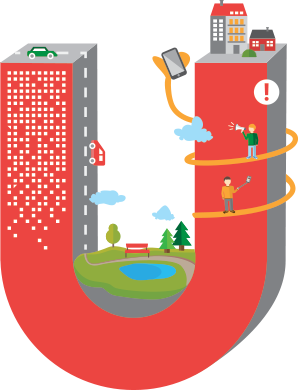
Topics of the workshop include, but are not limited to:
- Understanding behavior and habits around notifications
- Detection/prediction of availability, attention, and opportune moments for interruptions
- Ambient, peripheral, distributed and multimodal presentation of information or augmentation
- Timing of pro-active recommendations and user engagements
- Infrastructures, frameworks and tools for the development of smart attention systems
- Strategies for attention management from notifications of IoT devices
- Understanding users' behavior and habits around notifications and interruptions, including longer term user engagement and behavior change
- Use of ambient representations for big data analysis
- Management of information overload in smart city environments and cyber physical systems or smart mobility and vehicle environments
- Notifications in virtual reality (VR) and augmented reality (AR)
- Supporting the digital wellbeing of users
Keynote
On ecological validity, interruptibility and sample sizes
SWe will discuss our experiences with utilizing experience sampling and similar methods towards the end of ecologically valid studies on topics varying from human interruptibility and security. We will also discuss lessons we have learned about sample sizes used in HCI studies utilizing machine learning.

Janne Lindqvist is an associate professor of computer science at Aalto University and an associate professor of electrical and computer engineering at Rutgers University. He is the recipient of the United States National Science Foundation (NSF) CAREER award, which is NSF’s most prestigious awards in support of early-career faculty. Janne is the director of Helsinki-Aalto Institute for Cybersecurity (HAIC). His work has received sustained attention in the global media including Scientific American, IEEE Spectrum, MIT Technology Review, NPR, International Business Times, ABC News, CBS News, Fox News, Fortune, Computerworld, Der Spiegel, London Times, New Scientist, PBS, Slashdot, The Register, Wired (UK). Janne’s awards include the Best Paper Award from MobiCom’12, the Best Paper Nominee Award from UbiComp’14, and Sustainable Jersey Creation & Innovation Award 2014.
You can download or view the keynote presentation through Dropbox here.
Accepted Papers
We are very proud to have received many excellent submissions. Please find a list of all 6 accepted papers below.
You can download or view keynote and session presentations from the workshop on 12th of September 2020 through this Dropbox link.
- A Preliminary Study of an Intelligent System Facilitating Selective Notification Attendance on Smartphones via Alert Assistance
YI-Hao SHIH, Tang-Jie Chang, Jian-Hua Jiang, Hao-Ping Lee, and Yung-Ju Chang - Enticing Notification Text & the Impact on Engagement
Kieran Fraser and Owen Conlan - Deep Learning for Cognitive Load Monitoring: A Comparative Evaluation
Andrea Salfinger - Blink Rate Variability: A marker of Sustained Attention During a Visual Task
Rahul Gavas, Mithun B S, Debatri Chatterjee, Ramesh Kumar Ramakrishnan, Venkatasubramanian Viraraghavan, Achanna Anil Kumar, M Girish Chandra - Cognitive Load Detection from Wrist-Band Sensors
Xiling Li and Martine de Cock - Trading Energy for Accuracy in Mobile Interruptiblity inference
Aleksandar Cuculoski and Veljko Pejovic
Workshop Schedule
The UbiTtention2020 workshop will be held virtually on the 12th of September 2020.
All times are EST (GMT-4h).
| 07:10 - 08:00 am | Keynote Lecture |
| 08:00 am - 08:30 am | Break(out) Session |
| 08:30 am - 10:00 am | Paper Presentation Session |
| 10:00 am - 10:30 am | Break(out) Session |
| 10:30 am - 12:00 pm | Open-Data Challenge Presentations |
Important Dates
| Workshop submissions | |
| Submission Deadline | July 6, 2020 (23:59 AoE) |
| Notification of Acceptance | July 24, 2020 |
| Camera Ready | July 31, 2020 (template info) |
Submission Details
A paper should have a length of maximum 6 pages (including references) in the ACM SIGCHI Master Article template with 2 columns (see also: ) and will be reviewed by at least two workshop organisers. Successful submissions will have the potential to raise discussion, provide insights for other attendees, and illustrate open challenges and potential solutions. All accepted publications will be published on the workshop website and in the ACM Digital Library.
At least one author of each accepted paper needs to register for the conference and the workshop itself. During the workshop, each paper will be given time for an oral presentation. In addition, there will be room for demonstrations and hands-on sessions.
If you have any questions about the submission, feel free to send us an email to ubittention-org@ht.sfc.keio.ac.jp.
Machine learning challenge for monitoring cognitive load
Description
A machine learning challenge for detecting cognitive load, with results to be presented at the Ubittention workshop at UbiComp 2020, Cancun, 12 - 13th September 2020.
The goal of this machine learning challenge is to recognize 2 levels of cognitive load from the sensor data of a wearable wrist-band (Microsoft Band 2). The participants will have to develop a machine-learning pipeline that will process the sensor data, create models and output the recognized cognitive load. The best three teams will also receive prizes.
Prizes
- 1. 1000 EUR
- 2. 650 EUR
- 3. 350 EUR
Deadlines:
- 15.3.2020 - Labelled training data is provided
- 01.06.2020 - Participants registration deadline (see below)
- 23.4.2020 - Unlabelled test data is provided
- 19.6.2020 - Submission deadline: predictions + workshop poster
- 3.7.2020 - Review notification
- 17.7.2020 - Camera ready poster submissions
- 12.9.2020 - Top x (max 5) teams present their work at the workshop
- 20.9.2020 - Release of the ground-truth of the test data
Registration
Each team should send a registration email to cogload.challenge@gmail.com as soon as possible but no later than 1.6.2020. The email should include the following information:
- The name of the team
- The names of the participants in the team
- The organization/company (individuals are also encouraged)
- The contact person with email address
Additional information
For more details and deadlines regarding the challenge please see the following PDF file: Cognitive-load challenge
Winners announcement
The final results and ranking of the teams will be announced at the Ubittention workshop at the UbiComp 2020 conference.
Contact
All inquiries should be directed to: cogload.challenge@gmail.com
Challenge Organizers:
- Dr. Veljko Pejovic - University of Ljubljana, Slovenia
- Dr. Маtјаž Gams - Jozef Stefan Institute, Slovenia
- Dr. Jens Garbas - Fraunhofer IIS, Germany
- Dr. Mitja Luštek - Jozef Stefan Institute, Slovenia
- Dr. Hristijan Gjoreski - Ss. Cyril and Methodius, N. Macedonia
- Tine Kolenik - Jozef Stefan Institute, Slovenia
- Martin Gjoreski - Jozef Stefan Institute, Slovenia
- Dominik Seus - Fraunhofer IIS, Germany
Workshop Organising Committee
 Martin Gjoreski
Martin Gjoreski
Jozef Stefan Institute![]() martingjoreski.github.io
martingjoreski.github.io
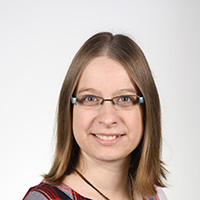 Alexandra Voit
Alexandra Voit ![]()
University of Stuttgart
alexandra-voit.de
 Niels van Berkel
Niels van Berkel ![]()
Aalborg University
nielsvanberkel.com
Aku Visuri
![]()
Center for Ubiquitous Computing, University of Oulu
akuvisuri.com
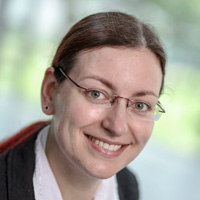 Anja Exler
Anja Exler
Karlsruhe Institute of Technology
teco.edu
Tine Kolenik
![]()
Jozef Stefan Institute
https://tinekolenik.github.io/
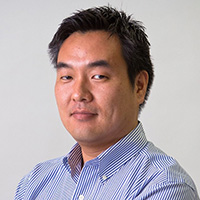 Tadashi Okoshi
Tadashi Okoshi ![]()
Keio University
okoshi.org
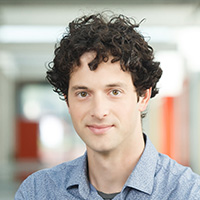 Veljko Pejovic
Veljko Pejovic ![]()
University of Ljubljana
lrss.fri.uni-lj.si
Contact
If you have any questions, don't hesitate to get in touch via email: ubittention-org@ht.sfc.keio.ac.jp